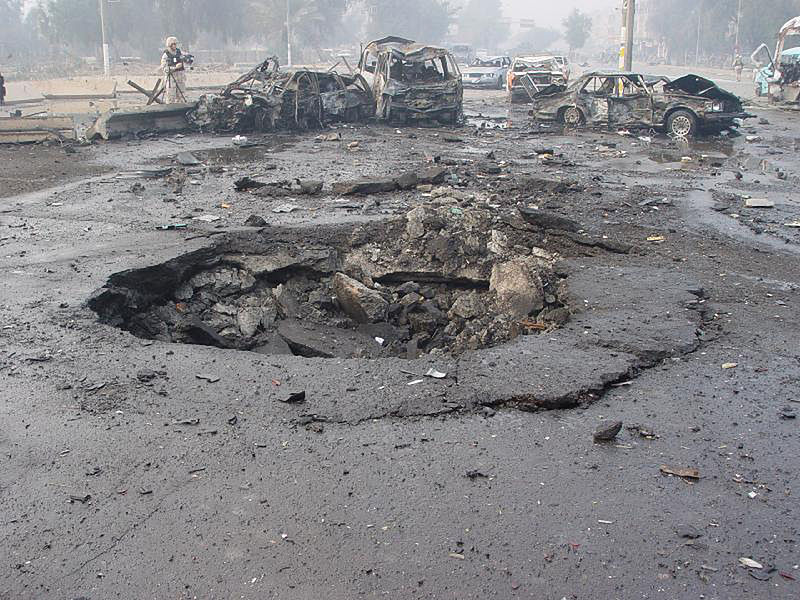📦 FREE shipping on orders over $30!

I'm sure many of us have been praying for the atrocities we have seen in the news in recent weeks. The shootings in the states, the blasts in the Kenyan shopping centre, the suicide bombings in Pakistan - the pictures on our TV screens have been horrifying. There have been moments when many of us have been close to tears and churches and individuals around the globe have been interceding for the victims and their families.
But our memories are often short. Within weeks, if not days, our prayers often turn to the next crisis and - unless we have friends who are directly impacted by the events - we rarely revisit the needs of those in news stories past. It's easy for us to forget. But those who survive the atrocities, never do. Recently, I spoke to one survivor of a suicide bombing that took place 3 years ago. He's a Muslim who is currently exploring the claims of Christ - many of the events of the day and his life have been left deliberately vague.
What happened 3 years ago?
It was just a normal day. And then attackers came. They had guns and suicide vests. We had nothing. It was carnage. Many people died, even more were injured. I lost friends and family members.
How have the events of 3 years ago affected you?
My whole world has changed. I was a confident young man pursuing my studies and looking forward to a good career but that's no longer the case. I've had to leave my home after further death threats and that has meant leaving close friends behind. I've lost my health. And I've not been able to find a job since.
In what ways did the bombing impact your health?
I wasn't actually hurt in the bombing. But the shock has been immense. I suffer with post traumatic stress syndrome. That means I get intense flashbacks. I can be going about my normal routine and suddenly all the images and emotions of the bombing overwhelm me, it's like I've gone back in time and have to relive the event again and again. Even on the days when I don't get flashbacks, my nerves are bad. I don't sleep well and I'm constantly on medication.
What about your wider family?
My father never got over the loss. He was at the top of his career but now has taken early retirement and struggles with depression. Isolated from family back home, often he spends his day just sitting. He's scared to go out.
What support do you get?
As I said, I'm on medication. Plus I get counselling which is helpful. I have friends who bring meals or go for a walk with me but it's hard for them to understand. I hope that one day I will recover but at the moment that day seems a long way off. People who haven't lived through it find it difficult to understand why it's so hard to move on. Everyone rallied round 3 years ago but now people think I should be OK and are reluctant to talk.
What kind of support would be helpful?
Prayer and practicalities. Prayer is key - it is God who changes people. Knowing that I am being prayed for is sometimes the one thing that helps me get out of bed. But practical support is useful too. The occasional meal and help with the garden enables me to keep going with the basics of life. And, of course, I need people to be normal friends too - everyone just wants to chill out with someone sometimes and talk about day to day things.
How can we be praying for those people who have survived recent events?
The key thing is to keep praying. Put it in your diary if that's what works for you so that in 6 months time, you have a reminder to pray for the survivors of the bombings that are in the news now. Pray that they will grieve well, pray that they will be able to work through the anger that inevitably arises and pray that their families will pull together rather than pull apart. Then you can go on to pray that they will know what it is to feel safe again, that God will give them the strength to process the memories, that they won't lose hope and that they will be surrounded by friends who are willing to stand by them long term.